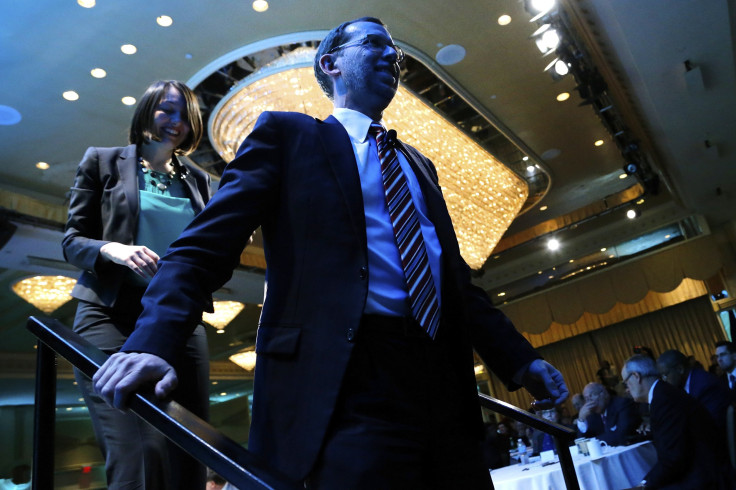US Deficit To Drop To $426B, Lowest In Obama Presidency: Congressional Report

The U.S. budget deficit will drop this year to its lowest level since President Barack Obama took office, a new report from the Congressional Budget Office indicated. The drop is expected to be followed by a steep rise, unless Congress acts to change budget circumstances, including a 10-year outlook that isn't substantially different from that in the last Congressional Budget Office report released in March.
The federal budget deficit is expected to be reduced by $59 billion this year compared to last, dropping to an estimated $426 billion. Assuming no substantial action is taken by Congress, which will reconvene in early September and have to address the budget in the months ahead, the federal deficit will then grow to about $1 trillion in 2025, led by growing healthcare costs for the country's seniors and spending on the federal healthcare law.
These predictions do not take into account recent stockmarket downturn.
The two major parties are likely going to use the information to bolster their positions going into budget negotiations. Democrats are expected to argue that the budget shortfall is a sign that spending cuts favored by Republicans are unnecessary. Those in the GOP, on the other hand, will point to future rising costs as a reason why Congress needs to act now. Republicans control both chambers of Congress, but there's a Democrat in the White House who could exercise his veto power. Since the GOP doesn't have a veto-proof majority, one might expect an impasse over the budget negotiations.
"I would caution those who would use this report as an opportunity to take these short-term savings and push for more spending," said Senate Budget Committee Chairman Mike Enzi, R-Wyo., the Associated Press reported. "Real, substantive budget reforms and savings will have to be on the table during any spending negotiations."
Aside from the deficit projected to reach its smallest size since 2007, the economy is expected to grow at a faster pace, which means that so-called "slack" in the labor market will dissipate. As a result, unemployment should decrease and participation in the labor market should increase. The unemployment rate is expected to fall from 5.2 percent in the final quarter of this year to 5.0 in the same quarter of 2017.
Follow me on Twitter: @ClarkMindock
© Copyright IBTimes 2025. All rights reserved.






















